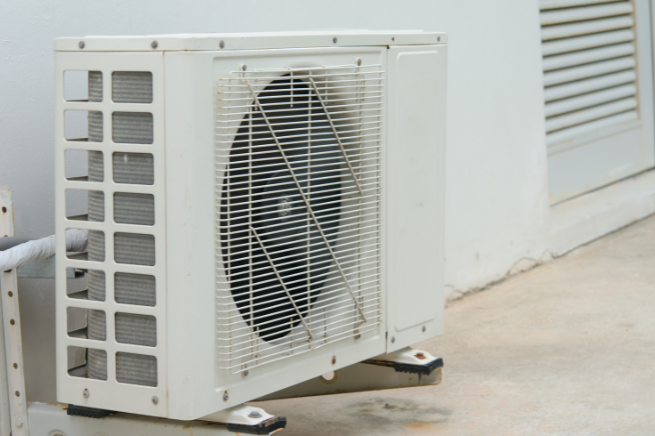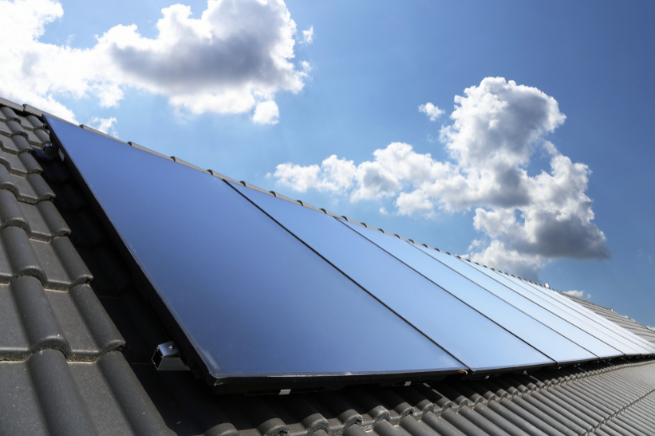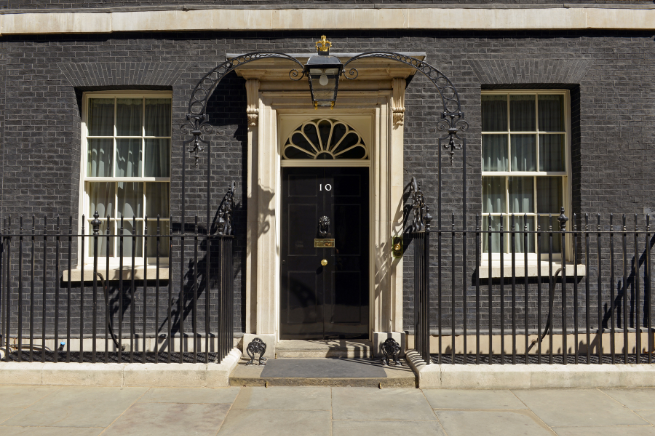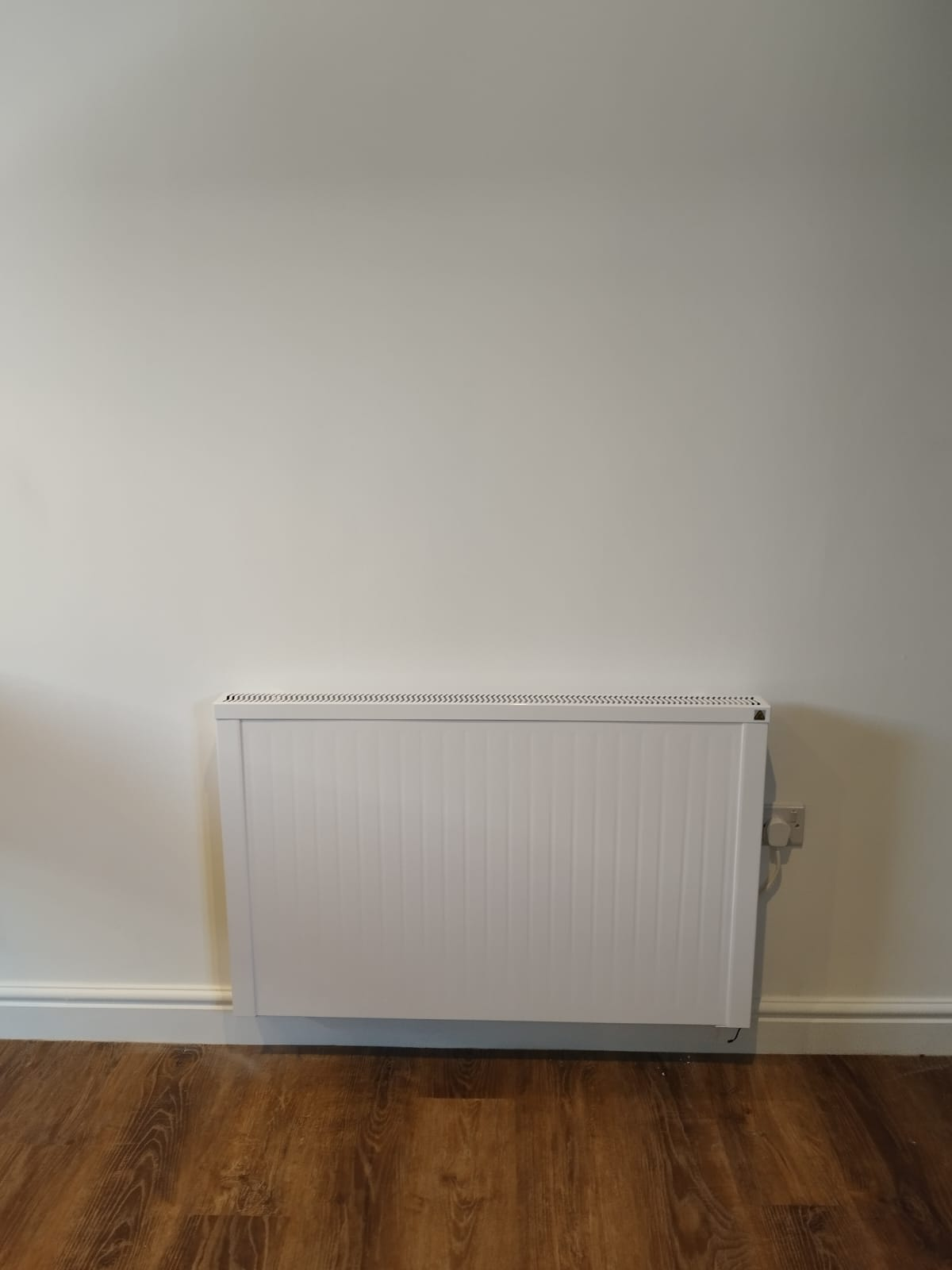
As the UK moves towards a more sustainable future, homeowners must adapt to new heating technologies that can reduce carbon emissions and help the country achieve its ambitious net-zero targets. In this blog post, we’ll explore the upcoming gas boiler ban, the low-carbon alternatives available, government incentives, and how to prepare for this important transition. Stay tuned as we delve into the future of home heating in the UK and discuss what will replace gas boilers in 2025!
The UK is taking steps to replace gas boilers with more sustainable alternatives by 2035.
Homeowners can choose from renewable energy sources such as hydrogen-ready boilers, heat pumps and biomass heating systems for a low-carbon transition.
Smart heating systems and green hydrogen are expected to become major players in the future of home heating in the UK.

The UK government has set its sights on banning gas boilers in new-build homes from 2025 and phasing them out in existing homes by 2035. This bold move aims to reduce carbon emissions and achieve the country’s net zero targets by 2050. As gas boilers are a major contributor to greenhouse gas emissions, the ban is a crucial step towards a more sustainable future.
However, it’s worth noting that the gas boiler ban is not yet set in stone, with some government sources suggesting that the phase-out could be postponed until 2040 due to potential difficulties in providing affordable low-carbon alternatives to all, should gas boilers be banned.
Nevertheless, the direction is clear: the UK is moving towards low-carbon heating systems, and homeowners need to be prepared for this change.
Gas boilers have a significant environmental impact, contributing to the UK’s carbon dioxide emissions and making homes a primary source of greenhouse gases. In fact, an average gas boiler emits about 2.2 tonnes of CO2 per year, which is greater than any other boiler type. Homes in England alone produce an astounding 58.5 million tonnes of CO2 annually, equivalent to the emissions of 28 million cars.
As the primary source of domestic energy consumption in the UK, gas boilers account for 14% of the nation’s emissions. With home heating being one of the largest contributors to global warming in the UK, transitioning away from gas boilers is essential in order to mitigate the effects of climate change and achieve net zero emissions.
The UK’s net zero target aims to achieve complete carbon neutrality by 2050, meaning that the country must offset all its greenhouse gas emissions by removing an equivalent amount of CO2 from the atmosphere.
To help homeowners transition to more sustainable heating systems, the government is promoting low-carbon alternatives like heat pumps and biomass boilers, which can be retrofitted into existing homes. By adopting these technologies, the UK aims to reduce emissions by 78% by 2035 compared to 1990 levels.

As the gas boiler ban looms, several gas boiler alternatives are being developed and promoted to help homeowners transition their existing gas boiler to more sustainable heating systems. These include hydrogen-ready boilers, heat pumps, solar thermal systems, and biomass heating systems. Each of these technologies offers unique advantages and can cater to different homeowner needs and preferences.
Understanding the key features and benefits of these low-carbon alternatives is essential for informed decision-making, so let’s explore each of them in more detail.
Hydrogen boilers, also known as hydrogen-ready boilers, are a promising alternative to traditional natural gas boilers, as they can run on a blend of natural gas and hydrogen, with the potential to switch to 100% hydrogen in the future. Hydrogen is a cleaner fuel source, producing only water vapor when burned, meaning it doesn’t release any pollutants into the atmosphere.
Most existing boilers are already able to operate on a hydrogen blend, though they may require modifications to transition to a 100% hydrogen system. With the development of hydrogen-ready boilers, homeowners could seamlessly integrate these systems into their already existing boiler infrastructure, making the switch from natural gas a more straightforward process.
Heat pumps are another energy-efficient alternative to gas boilers, utilizing renewable energy sources to heat homes. Heat pumps come in two main varieties. Air source heat pumps use the air as a heat source, whereas ground source pumps use heat energy from the ground. An air source heat pump uses warmth from the outdoor air to heat a refrigerant, which is then compressed to generate a higher temperature and circulated throughout the home, making the heat pump an effective solution.
Ground source heat pumps, on the other hand, use an underground network of pipes to collect heat from the ground, which retains heat from the sun. Both air source and ground source heat pumps can provide heating and hot water, with the added benefit of being more environmentally friendly than traditional gas boilers. One of the advantages of a ground source heat pump is its efficiency in providing consistent temperature throughout the year.
However, the initial cost of installation can be high, so it’s essential to weigh the long-term benefits against the upfront expenses.

Solar thermal systems are another low-carbon alternative to gas boilers, using solar thermal panels to capture heat energy from the sun to generate hot water. These solar panels can be installed on rooftops or other sun-exposed locations, providing a renewable source of heating and hot water for homes.
While the initial cost of solar thermal systems can be substantial, they offer long-term savings on energy bills and can help reduce a home’s carbon footprint. Additionally, homeowners may be eligible for government grants, such as the Clean Heat Grant, to help offset the cost of installation.
Biomass heating systems, which use renewable fuel sources like wood pellets or chips to generate heat, provide another sustainable alternative to gas boilers and reliance on fossil fuels. These systems operate similarly to traditional boilers, providing heat for hot water and central heating.
While the initial cost of biomass boilers can be high, the running costs are typically lower than those of gas boilers, offering potential long-term savings on energy bills. As with other low-carbon alternatives, government grants and incentives may be available to help homeowners make the switch to biomass heating systems.

The UK government recognizes the importance of transitioning to low-carbon heating systems and offers various incentives and support schemes to help homeowners make this change. Among these initiatives are the Boiler Upgrade Scheme and the Clean Heat Grant, both of which aim to provide financial assistance for the installation of renewable heating systems.
By taking advantage of these schemes, homeowners can offset the initial costs of low-carbon heating systems and contribute to the UK’s overall net-zero emissions target. Let’s take a closer look at each of these government initiatives.
The Boiler Upgrade Scheme is a government-funded initiative that provides grants to homeowners to enable them to replace their obsolete, inefficient boilers with modern, energy-efficient models. The scheme is accessible to homeowners who satisfy certain conditions, including receiving certain benefits and possessing a boiler that is at least 5-8 years old.
Through the Boiler Upgrade Scheme, homeowners can receive up to £6,000 in financial support for the installation of low-carbon heating systems, such as heat pumps or biomass boilers. This assistance not only helps homeowners transition to more sustainable heating options, but also contributes to the UK’s efforts to reduce carbon emissions.
Similar to the Boiler Upgrade Scheme, the Clean Heat Grant is a government-funded initiative that provides grants of up to £5,000 to households for the installation of low-carbon heating technologies, such as heat pumps and biomass boilers. The grant is accessible to existing buildings that meet specific eligibility criteria.
By participating in the Clean Heat Grant, homeowners can benefit from financial assistance to replace their outdated, inefficient boilers with new, energy-efficient models, ultimately contributing to the UK’s push for a greener future.

Before making the switch to a low-carbon heating system, it’s essential for homeowners to assess their home’s energy efficiency and choose the right alternative for their specific needs and circumstances. This includes evaluating factors such as insulation, heating system efficiency, and appliance performance.
By taking the time to properly assess and prepare for the transition, homeowners can ensure a smooth process and reap the long-term benefits of a more sustainable and energy-efficient heating system.
Prior to transitioning to a low-carbon heating system, homeowners should conduct a home energy assessment or audit to evaluate their home’s energy efficiency. This process involves gathering building information, collecting energy consumption data, monitoring internal temperatures, and generating an online test report.
Such an assessment can help identify areas where improvements can be made, such as sealing air leaks, upgrading insulation, or replacing inefficient appliances. By addressing these issues, homeowners can ensure that their new low-carbon heating system operates at optimal efficiency.
Selecting the most suitable low-carbon heating system for your home involves considering factors such as the size of your home, its location, and any existing infrastructure. Each low-carbon alternative has its own unique benefits and limitations, so it’s crucial to weigh these factors against your specific needs and circumstances.
For example, heat pumps may be an ideal choice for homeowners with well-insulated properties, while biomass boilers might be more suitable for those with access to a reliable supply of wood pellets or chips. By carefully considering these factors, homeowners can make an informed decision and select the best low-carbon heating system for their home.

As the UK pushes towards a greener future, the landscape of home heating is set to change dramatically. The future of home heating in the UK will likely involve a combination of smart heating systems and green hydrogen, offering more sustainable and efficient ways to heat homes.
With the government’s commitment to replace gas boilers and promote low-carbon alternatives, homeowners can expect to see significant advancements in heating technology, including the introduction of new gas and electric boiler options, with a continued focus on energy efficiency and sustainability.
Smart heating systems are gaining popularity as homeowners seek greater control over their energy usage and more efficient heating solutions. These systems, which are connected to the internet, can be managed remotely through a smartphone, tablet, or PC, allowing for greater control over home heating and potential energy bill savings.
With the ability to set schedules, adjust temperatures, and even detect and diagnose issues with the heating system, smart heating systems offer numerous advantages over traditional heating systems.
As the demand for energy-efficient and eco-friendly home heating solutions grows, we can expect to see a continued rise in the adoption of smart heating systems.
Green hydrogen, produced using renewable energy sources like solar or wind power, has the potential to become a major player in the UK’s low-carbon heating landscape. As a clean energy source that emits only water vapor and no pollutants, green hydrogen could be used to power district heat networks and hydrogen-ready boilers, offering a sustainable alternative to natural gas.
Although the large-scale adoption of green hydrogen is still in its early stages, the UK government’s commitment to promoting low-carbon heating systems and achieving net-zero emissions by 2050 suggests that green hydrogen may play an increasingly important role in the future of home heating in the UK.
In conclusion, the transition from gas boilers to low-carbon heating systems is an essential step towards a more sustainable future for the UK. As we move towards the government’s net-zero targets, innovative technologies like hydrogen-ready boilers, heat pumps, solar thermal systems, and biomass heating systems offer promising alternatives to traditional gas boilers. With the support of government incentives and a focus on energy efficiency, homeowners can embrace this transition and contribute to a greener, more sustainable future for all.
Given the cost of repairs, if your old gas boiler is acting up, it may be wise to invest in a new gas boiler now. An old boiler can end up costing you more money in costly repairs and replacements than the initial investment into a newer model.
Investing in a new boiler now could save you money down the line and improve your home’s heating efficiency.
According to the Heat and Buildings Strategy, natural gas boilers will be phased out after 2035. Therefore, if your boiler reaches its end of life after this date, you will need to replace it with a low-carbon alternative, rather than another gas or oil boiler.
Given the information available, it looks highly likely that new gas boilers will be available to purchase in 2025. This is because the current plan is for a ban on new installations only, meaning existing gas boilers would not be affected and so can continue to be sold.
Consequently, it appears safe to conclude that you should have no difficulty buying a natural gas boiler in 2025.
Heat pumps are more energy efficient and cost effective than gas boilers, and with the current government grants available for replacing a gas boiler, it is an attractive option to switch.
In addition, rising gas prices mean that heat pumps become an even more attractive option, making it likely that they will increasingly replace gas boilers in the future.
The UK government has proposed a plan to phase out the use of gas boilers in existing homes by 2035, aiming to shift towards more efficient and low-carbon alternatives, such as heat pumps and biomass boilers.
This will help to reduce carbon emissions and contribute to the fight against climate change.
Tags: General Guides, Understanding Heating.

If you are considering electric heating/electric radiators, then this guide tells you everything you need to know. Discover this modern, sustainable and economical method of heating that gives you complete control and comfort. Download Free Guide now.

*Trust Electric Heating needs the contact information you provide to us to contact you about our products and services. You may unsubscribe from these communications at any time. For information on how to unsubscribe, as well as our privacy practices and commitment to protecting your privacy, check out our Privacy Policy.
Quick installation and a 100 day warmth guarantee. Whether you’re buying one or several radiators, if our radiators don’t heat your room to a minimum of 20 degrees we will undertake to upgrade or replace the radiators free of charge.
Book your free consultation